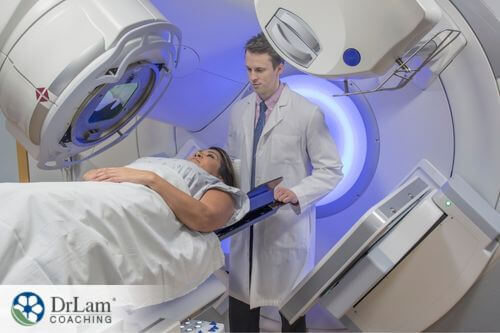 According to the American Cancer Society, an estimated 287,000 new cases of invasive breast cancer were identified during 2021 alone. About one in eight women in the US will develop breast cancer. This poses the question: what can you do to improve breast cancer?
According to the American Cancer Society, an estimated 287,000 new cases of invasive breast cancer were identified during 2021 alone. About one in eight women in the US will develop breast cancer. This poses the question: what can you do to improve breast cancer?
Breast cancer results from breast cells mutating and creating a tumor. This mass of tissue can invade tissue surrounding the breast area. It can also travel to other parts of your body where it may form tumors. The term for this spread is metastasis.
Breast cancer tends to occur in women in their middle or later years of life with the median diagnosis age at sixty-two. What this means is that over half the women with this type of diagnosis are over the age of sixty-two. Very few women receive a breast cancer diagnosis under the age of forty-five. The incidence of breast cancer in women, however, has seen a 0.5% increase in recent years. A leading cause of death in women, only lung cancer causes more cancer-related deaths. The risk of fatality is about 2.69%.
Breast cancer can occur in both men and women, although women seem more at risk. The following increase your risk of breast cancer:
The condition’s symptoms vary from one person to another. Many people show no symptoms. You should thus have regular checkups to determine whether you have the condition. The earlier an assessment, the higher your recovery prognosis.
Common signs to look out for include:
After a breast examination, you may need to undergo testing. The testing may involve:
Upon finding something suspicious, your healthcare provider may suggest a biopsy to determine the presence of cancer.
Those with breast cancer have many therapy options. These include various forms of surgery ranging from those that target only the affected area to a total mastectomy (the removal of the entire breast). Your healthcare provider may also suggest chemotherapy, radiation therapy, immunotherapy, hormone therapy, or targeted drug therapy. They may also recommend the use of different therapies simultaneously. Do talk to your healthcare provider about the pros and cons of any suggested therapy.
Remember, as with any other cancer, you always have a risk of the condition returning or cancer turning up in another part of your body. This is even the case with those deemed cancer survivors. Having once had cancer increases your cancer risk in the future. Certain lifestyle adjustments may improve breast cancer prognoses.
 Estrogen, a female sex hormone, is a carcinogen. While estrogen plays an essential physiological role in both men and women, it may also increase your cancer risk.
Estrogen, a female sex hormone, is a carcinogen. While estrogen plays an essential physiological role in both men and women, it may also increase your cancer risk.
Hormone Replacement Therapy (HRT) using estrogen and progestin usually uses a synthetic version of progesterone and may also increase your risk of breast cancer. HRT in menopausal women only using estrogen may increase your risk of endometrial cancer. This type of HRT is thus usually only used in women who have undergone a hysterectomy. So, if thinking about HRT, please ask your healthcare provider to explain all pros and cons.
According to literature, breast cancer risk has a strong correlation with estrogen and progesterone production. Long-term exposure to elevated levels of these hormones may increase your breast cancer risk. This increased exposure may result from later commencement of menstruation, late menopause, never having given birth, and having your first pregnancy at an older age. In contrast, giving birth reduces your lifetime breast cancer risk, as does breastfeeding. Adrenal fatigue may also cause a hormone imbalance.
Hormones have a wide variety of roles in your body. These include their roles in the reproductive process, growth, metabolism, brain signaling, and stress response. However, a hormonal imbalance may not only affect a specific hormone but have an impact on the production of other hormones as well. This is because some hormones function as precursor hormones for others. One of the major factors contributing to a hormone imbalance is stress.
Your NeuroEndoMetabolic (NEM) stress response, governed by the Hypothalamic-Pituitary-Adrenal (HPA) axis, activates processes throughout your body when you encounter stress. This stress could result from physiological or psychological issues.
Part of the NEM stress response, the increased cortisol production in the adrenals, serves to prepare your body to either fight or flee from the situation. When a stressful situation persists, however, so too does the demand for higher cortisol production. This may have an impact on the production of other hormones. Many of these hormones share precursor hormones with cortisol.
A woman’s estrogen and progesterone levels need to maintain a specific balance. This balance helps regulate the reproductive cycle as well as menopause. It also plays a role in mood, weight, mental clarity, and energy levels, amongst others.
One of the results of continued stress is estrogen dominance. This does not necessarily require a higher estrogen production; lower progesterone production can cause higher estrogen levels as compared to progesterone levels.
A decline in both these hormones often results due to the aging process. However, adrenal fatigue, which happens when the adrenals are no longer able to maintain the higher cortisol production asked of them, may also play a role. This hormone imbalance may contribute to several health conditions. These include menstrual issues, fibrocystic breast disease, sore and swollen breasts, and breast cancer.
Breast cancer is not a condition you would wish on your worst enemy. For those battling the condition, the following recommendations may improve breast cancer therapy's effectiveness. For those who have won their battle, it may help improve breast cancer's long-term prognosis.
Making positive lifestyle changes may help on both a psychological and physical level. It may help improve your mood, outlook, and energy on the one hand, and improve your health on the other. Many of these steps help your overall health, reduce stress, and manage adrenal fatigue as well.
 Literature suggests that obesity may increase your risk of breast cancer resurgence. It may also increase your lymphedema risk, as well as mortality risk. However, it's not clear whether losing weight during or after your cancer therapy improves your outlook.
Literature suggests that obesity may increase your risk of breast cancer resurgence. It may also increase your lymphedema risk, as well as mortality risk. However, it's not clear whether losing weight during or after your cancer therapy improves your outlook.
Losing weight may have other health benefits, however, like improved heart health, blood pressure, and hormone balance.
Unfortunately, many women gain weight while undergoing therapy as well as afterward. The reasons for this may include reduced activity due to fatigue, a reduced metabolic rate, the medications used, or as a result of stress.
Before embarking on any weight loss journey, please first talk to your healthcare provider. They can help you choose a weight loss plan suitable for your circumstances.
Exercise may improve breast cancer therapies’ effectiveness and also reduce your risk of resurgence, according to literature. Research shows that physical activity may actually have the most significant effect when compared to all other lifestyle changes to improve breast cancer survival.
Literature suggests a significant reduction in mortality in women participating in physical exercise after their breast cancer diagnosis. The beneficial influence of exercise was most noticeable in women with a body mass index of more than twenty-five and postmenopausal women. It may lower endogenous hormone levels, help address insulin resistance, and promote inflammation reduction as well.
For best results, thirty minutes of moderate exercise per day five times a week, as well as strength training three times weekly, seem most effective.
You could also opt for yoga. Literature suggests yoga has many health benefits that include, amongst others, reducing your risk for type-2 diabetes, depression, high blood pressure, and heart disease. It may also help reduce some of the side effects associated with cancer therapy and help speed your recovery. Yoga may also reduce inflammation.
Watching what you eat may improve breast cancer outcomes. According to literature, cancer survivors who eat more of a broad range of fruits, vegetables, fish, chicken, and whole grains tended to have a lower mortality rate than those who consumed a diet high in refined sugars, red meat, processed foods, and unhealthy fats. Although the findings are positive, researchers cannot accurately say whether the results are due to the effect of these foods on breast cancer per se, or whether it is due to the other associated health benefits of following a healthy diet.
With regards to fats, however, the literature strongly suggests a correlation between fat intake and breast cancer recurrence. It shows that those following a low-fat diet after finishing their therapy showed a lower risk of cancer recurrence.
Soy contains isoflavones. These compounds may have an estrogen-like effect on your body. Some studies show that consuming soy may reduce your risk of cancer resurgence. The evidence, however, is not conclusive.
Another thing to look at is alcohol consumption. While literature suggests alcohol as a breast cancer risk factor, it is not clear whether it could promote a resurgence of the condition. Alcohol may raise your estrogen levels which, theoretically, may increase your risk of the condition coming back.
While literature does not suggest a specific diet to improve breast cancer outcomes, the general consensus suggests you should have a diet high in vegetables, low in sugar, and adequate protein and fat. It also supports the idea of severely limiting your alcohol, fat, and red meat intake. Fasting has also been studied prior to getting chemotherapy to allow for reduced side effects of the strong treatment.
Your body needs sleep. It uses this time to recuperate and heal itself. A 2016 study suggests that women who slept less than five hours a night before diagnosis had a heightened mortality risk than those who slept for seven or eight hours a night.
 When undergoing conventional therapy, you may be able to improve breast cancer outcomes by incorporating some of the information above. When undergoing these therapies, you may feel ill, fatigued, and even depressed. But making even small positive changes may help speed up your recovery time.
When undergoing conventional therapy, you may be able to improve breast cancer outcomes by incorporating some of the information above. When undergoing these therapies, you may feel ill, fatigued, and even depressed. But making even small positive changes may help speed up your recovery time.
If you want to make changes while still undergoing therapy to improve your breast cancer outcomes, please talk to your oncologist about it first. Your oncologist is best able to judge your physical condition and whether making drastic changes would improve breast cancer therapy efficacy and outcomes.
The majority of women beat breast cancer. And many of these survivors make certain lifestyle changes that reduce their resurgence risk. Getting at least 2.5 hours of exercise per week, eating a low-fat diet, sleeping at least 7-8 hours per night, and watching your weight may improve breast cancer outcomes.
If you would like to know more about how to improve breast cancer outcomes, the team at Dr. Lam Coaching can help. We offer a free* no-obligation phone consultation at +1 (626) 571-1234 where we will discuss your concerns. You can also send us a question through our Ask The Doctor system by clicking here.
Addressing adrenal fatigue may help overall health and thereby improve breast cancer outcomes. Supporting overall health with a healthy, low-fat diet, watching weight, and gentle exercise are good ways to support both conditions. Talk to your healthcare provider if you have adrenal fatigue about additional ways to boost your health and manage breast cancer as well.
